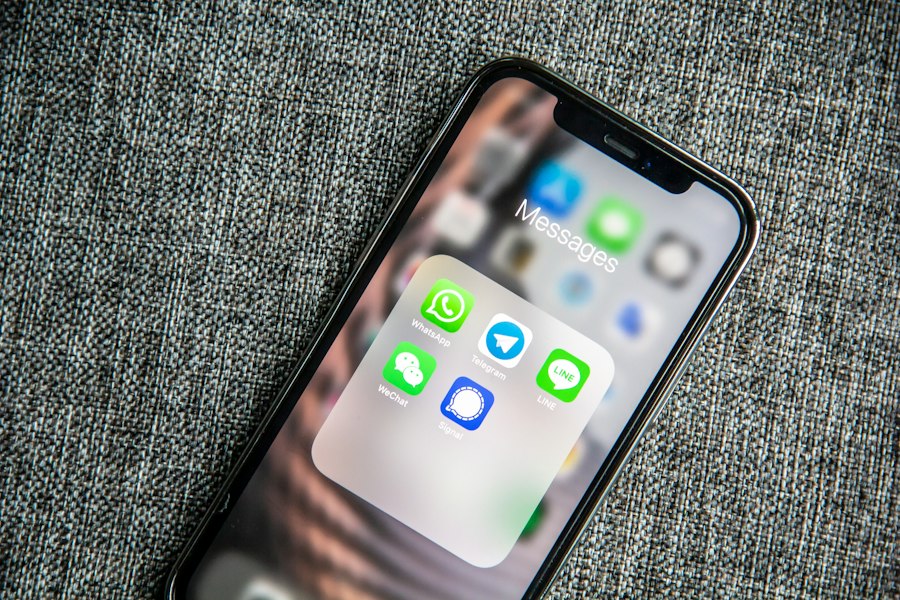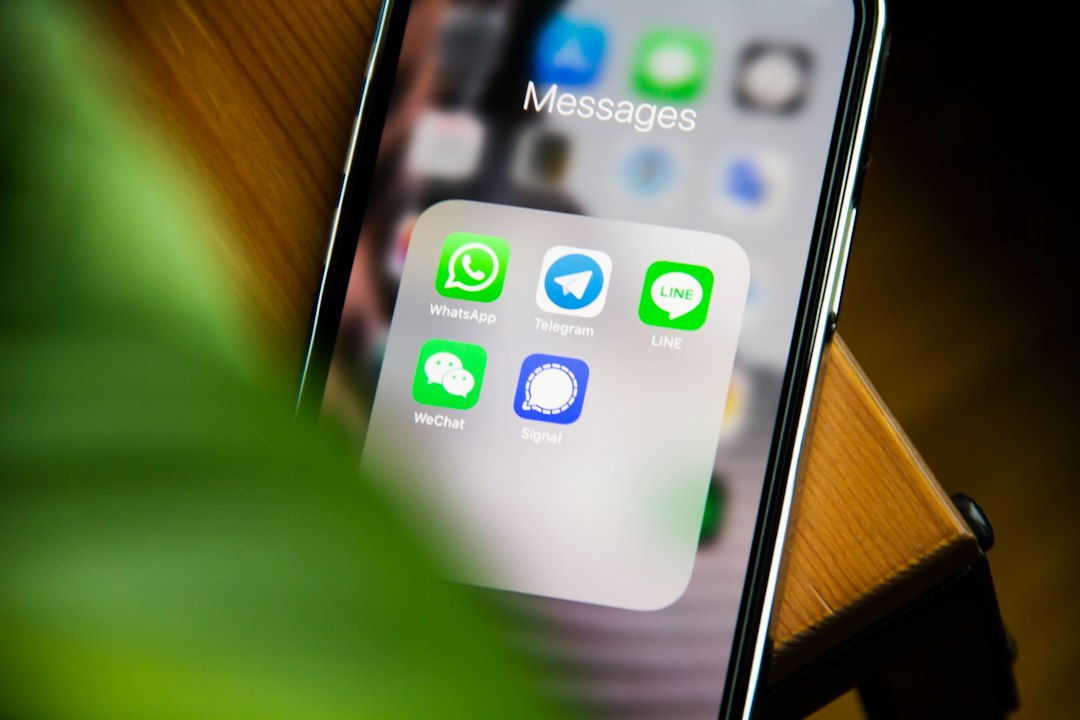Conversational marketing is a strategy that focuses on engaging with customers through personalized, one-on-one conversations. It is a way for businesses to build relationships with their customers and provide them with a more personalized and interactive experience. One platform that has become increasingly popular for conversational marketing is WhatsApp.
WhatsApp is a messaging app that allows users to send text messages, voice messages, make voice and video calls, and share media files. With over 2 billion users worldwide, WhatsApp provides businesses with a massive audience to engage with. It offers a unique opportunity for businesses to have direct conversations with their customers and build meaningful relationships.
Key Takeaways
- Conversational marketing on WhatsApp is a powerful tool for engaging with your target audience.
- Authenticity is key in WhatsApp conversations, as users value genuine interactions with brands.
- Creating engaging content that resonates with your audience is crucial for success on WhatsApp.
- Personalization can help build stronger connections with your WhatsApp audience and improve engagement.
- Building trust through conversation is essential for establishing long-term relationships with your WhatsApp audience.
Understanding the Importance of Authenticity in WhatsApp Conversations
Authenticity is crucial in conversational marketing on WhatsApp. Customers want to feel like they are having a genuine conversation with a real person, not a robot or a scripted response. Authenticity helps build trust and credibility, which are essential for long-term customer relationships.
To maintain authenticity in WhatsApp conversations, it is important to use a conversational tone and language. Avoid using overly formal or robotic language that may make the conversation feel impersonal. Respond promptly and genuinely to customer inquiries and feedback. Show empathy and understanding towards their concerns or issues. By being authentic in your conversations, you can create a more positive and engaging experience for your customers.
Creating Engaging WhatsApp Content for Your Target Audience
To create engaging content for WhatsApp conversations, it is important to first identify your target audience on the platform. Understand their needs, preferences, and pain points so that you can tailor your content to resonate with them.
One tip for creating engaging content on WhatsApp is to use multimedia elements such as images, videos, and GIFs. These visual elements can help capture the attention of your audience and make your conversations more interesting and interactive.
Another tip is to personalize your content based on the individual customer’s preferences and interests. Use their name in the conversation and refer to previous interactions or purchases to make the conversation more personalized and relevant to them.
The Role of Personalization in Conversational Marketing on WhatsApp
Personalization plays a crucial role in conversational marketing on WhatsApp. Customers expect businesses to understand their individual needs and preferences and provide them with personalized recommendations and solutions.
To personalize your WhatsApp conversations, you can use customer data and insights to tailor your messages and offers. For example, if a customer has previously purchased a certain product, you can recommend related products or offer them exclusive discounts on similar items.
You can also use chatbots to automate personalized responses based on customer data. Chatbots can analyze customer inquiries and provide relevant information or solutions based on their previous interactions with your business.
Building Trust with Your WhatsApp Audience through Conversation
Trust is a fundamental aspect of conversational marketing on WhatsApp. Customers need to trust that the information and recommendations they receive from businesses are reliable and accurate.
To build trust with your WhatsApp audience, it is important to be transparent and honest in your conversations. Provide clear and accurate information about your products or services, and avoid making false claims or promises.
Another way to build trust is by actively listening to your customers and addressing their concerns or issues promptly. Show empathy and understanding towards their needs, and provide them with helpful solutions or alternatives.
Tips for Starting and Maintaining Conversations on WhatsApp

Starting a conversation on WhatsApp can be as simple as sending a personalized greeting or asking a question related to the customer’s previous interaction with your business. The key is to make the conversation feel natural and non-intrusive.
Once the conversation has started, it is important to maintain it by responding promptly and providing valuable information or assistance. Avoid sending generic or automated responses that may make the conversation feel impersonal.
To maintain conversations on WhatsApp, you can also send follow-up messages or updates related to the customer’s previous inquiries or purchases. This shows that you are actively engaged and committed to providing them with a positive experience.
Using WhatsApp Analytics to Improve Your Conversational Marketing Strategy
WhatsApp provides businesses with analytics tools that can help them track and analyze the performance of their conversational marketing efforts. These analytics can provide valuable insights into customer behavior, preferences, and engagement levels.
By using WhatsApp analytics, businesses can identify trends and patterns in customer interactions and adjust their conversational marketing strategy accordingly. For example, if certain types of content or offers are receiving higher engagement rates, businesses can focus on creating more of that content to drive better results.
WhatsApp analytics can also help businesses identify areas for improvement in their conversations. By analyzing response times, customer satisfaction ratings, and other metrics, businesses can identify bottlenecks or areas where they can provide a better customer experience.
Leveraging Chatbots for More Efficient Conversational Marketing on WhatsApp
Chatbots are automated messaging systems that can interact with customers in a conversational manner. They can be used to handle common customer inquiries, provide product recommendations, and even complete transactions.
On WhatsApp, businesses can leverage chatbots to automate certain aspects of their conversational marketing strategy. For example, chatbots can handle initial customer inquiries and provide basic information or assistance. This frees up human agents to focus on more complex or personalized interactions.
Chatbots can also be used to provide 24/7 support on WhatsApp, ensuring that customers always have access to assistance whenever they need it. This can help improve customer satisfaction and loyalty.
Measuring the Success of Your WhatsApp Conversational Marketing Efforts
To measure the success of your WhatsApp conversational marketing efforts, it is important to track key metrics such as response times, engagement rates, conversion rates, and customer satisfaction ratings.
Response times measure how quickly your business responds to customer inquiries or messages. Faster response times generally lead to higher customer satisfaction and engagement.
Engagement rates measure how actively customers are interacting with your business on WhatsApp. This can include metrics such as the number of messages exchanged, the length of conversations, and the number of media files shared.
Conversion rates measure how effectively your WhatsApp conversations are driving desired actions, such as purchases or sign-ups. By tracking conversion rates, you can identify areas for improvement in your conversational marketing strategy.
Customer satisfaction ratings can be collected through surveys or feedback forms sent after a conversation. This metric provides insights into how well your business is meeting customer expectations and can help identify areas for improvement.
Future Trends and Opportunities in Conversational Marketing on WhatsApp
The future of conversational marketing on WhatsApp holds many exciting opportunities for businesses. As technology continues to advance, businesses can leverage features such as voice and video calls, augmented reality, and chatbot integrations to provide even more personalized and interactive experiences.
One future trend in conversational marketing on WhatsApp is the integration of artificial intelligence (AI) and machine learning (ML) technologies. These technologies can help businesses analyze customer data in real-time and provide more accurate recommendations or solutions.
Another trend is the rise of chat commerce, where customers can make purchases directly within a WhatsApp conversation. This eliminates the need for customers to switch between different platforms or apps, making the purchasing process more seamless and convenient.
Overall, conversational marketing on WhatsApp offers businesses a unique opportunity to engage with their customers in a more personalized and interactive way. By understanding the importance of authenticity, creating engaging content, personalizing conversations, building trust, and leveraging analytics and chatbots, businesses can create meaningful relationships with their customers and drive better results.
If you’re looking to enhance your conversational marketing skills on WhatsApp, you won’t want to miss this insightful article from Martech. In their piece titled “The Power of Personalization: How to Create Authentic and Engaging WhatsApp Interactions,” they delve into the importance of building genuine connections with your audience through personalized messaging. With practical tips and strategies, this article is a must-read for anyone seeking to make their WhatsApp interactions more meaningful and effective. Check it out here.
FAQs
What is conversational marketing?
Conversational marketing is a marketing strategy that involves engaging with customers through personalized, one-on-one conversations to build relationships and drive sales.
What is WhatsApp?
WhatsApp is a messaging app that allows users to send text messages, voice messages, make voice and video calls, and share media files.
How can businesses use WhatsApp for conversational marketing?
Businesses can use WhatsApp to engage with customers in real-time, answer questions, provide support, and offer personalized recommendations.
What are some tips for making WhatsApp interactions authentic and engaging?
Some tips for making WhatsApp interactions authentic and engaging include using a conversational tone, personalizing messages, responding promptly, and providing valuable information.
What are the benefits of conversational marketing on WhatsApp?
The benefits of conversational marketing on WhatsApp include building stronger relationships with customers, increasing customer satisfaction and loyalty, and driving sales through personalized recommendations and promotions.
What are some examples of successful conversational marketing on WhatsApp?
Some examples of successful conversational marketing on WhatsApp include food delivery services sending personalized recommendations based on previous orders, airlines sending flight updates and travel tips, and e-commerce businesses providing customer support and order tracking.

